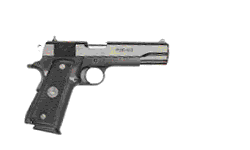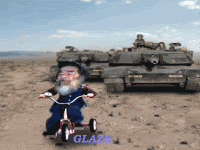Post by sky on Mar 2, 2009 12:20:22 GMT 8
Radio Protocols
Listed below are a set of guidelines on how to properly use the radios. The radios are very easy to use and something that should be used sparingly.
1. Make sure your radio is on the same channel of your team.
2. Make sure to turn your radio on and adjust the volume. You want it loud enough to hear but not too loud that your conversations are heard by your enemy.
3. To talk, push the button(PTT) first before talking.
Keep the button pushed the entire time you are speaking. When you are done, release the button to hear a response.
4. When addressing someone on the radio, please use the call sign followed by your name. Follow that up with the codes.
For example, if Striker were trying to reach Scorpio,
They should use the phrase “Striker to Scorpio.” Scorpio would
respond “this is Scorpio go ahead Striker.”
When you are finished, you end the radio communication with “ Striker OUT or Scorpio OUT.”
This alerts other members that you are finished with your communication so someone else can
use the radios.
5. Always make sure that you do not interrupt someone’s conversation when you start talking. Take a few seconds to listen to your radio before you start talking just to be sure
you are not talking over someone.
The following document is to give you an overview of proper radio usage. Proper use of your radio is not a snob issue! Using your radio correctly could save you or another person.
So, here goes:
The following is a short list of proper terminology and procedures to use on your radio.
Brevity is important: Most of today’s terminology used on the radio has been passed down from the military.
They discovered long ago that a single word instead of a long phrase is much easier to understand.
• "Roger": Means only that "I understand your transmission." It does not mean that I agree or disagree with what you said.
• "Wilco": Means "I understand your transmission and I will comply with your request." (WIL = will, CO = comply)
In spite of what you may have heard in old war movies, there is no such thing as "Roger Wilco"! It is either one (Roger) or the other (Wilco), but not both.
• "Affirmative": Means "Yes". Do not use words like "Un- Huh", "Yup" or "Al-righty".
• "Negative": Means "No". Do not say "Negatory"; there is no such word.
• "Niner": The number nine (9) is very difficult to understand over the radio, so we use the word "Niner" in its place.
• "Over": Means "I have completed my statement and am awaiting your reply." Just say "Over", not "Do you copy?" or "Come on back!".
• "Out": Means that "I have completed my communication and I am returning to the hailing channel."
As with "Roger Wilco", there is no such thing as "Over and Out". It’s either one (Over) or the other (Out).
EMERGENCY/ DISTRESS SITUATION
An emergency call is addressed to any and all stations (other radios) within your transmitting range. When an emergency transmission is made, all other radio traffic should cease immediately!
There are three levels of emergency calls.
First Level Emergency: The "distress" signal is "MAYDAY". This word should be said three (3) times: "MAYDAY - MAYDAY - MAYDAY!". This signal is to be used only when there is grave danger (you’re gonna die) to your or the people your paddling with.
Second Level Emergency: The "urgency" signal is "Pan-Pan" (pronounced "pon-pon"). This should be stated three (3) times: "PAN-PAN - PAN-PAN - PAN-PAN!". This signal should be used when you have a serious, but not life threatening, situation that requires assistance. Some examples are serious illness or injury to a crewmember, or if the captain himself becomes incapacitated.
Third Level Emergency: The "safety" signal is "Security" (pronounced as "SAY–CURE-IT-TAY"). This word should also be said three (3) times: "SECURITY - SECURITY - SECURITY!". This signal should be used to warn of conditions that may affect members in that area.
Now, let’s talk about the information that an emergency rescue service needs from you when you are calling in a MAYDAY:
• Your name, repeated 3 times.
• Your position! The importance of knowing where you are at all times can't be overemphasized. If you have a GPS, use its latitude & longitude coordinates. If you don’t know how to do any of these things, get a book or take a navigation class as soon as possible.
I’ve listened to people in real trouble who, when asked what their position was, said things such as "I’m off the coast of Florida" or "I’m kinda north of Boca Raton". One guy, when asked what his position was, said "I’m Senior Vice-President of the _______ Bank." Never waste time in this situation! Remember no one can help you if they don’t know where you are.
• The nature of your problem.
• The number of person and if there are any injuries.
• Conclude your transmission. (i.e. "Over.")
• Repeat as necessary.
Listed below are a set of guidelines on how to properly use the radios. The radios are very easy to use and something that should be used sparingly.
1. Make sure your radio is on the same channel of your team.
2. Make sure to turn your radio on and adjust the volume. You want it loud enough to hear but not too loud that your conversations are heard by your enemy.
3. To talk, push the button(PTT) first before talking.
Keep the button pushed the entire time you are speaking. When you are done, release the button to hear a response.
4. When addressing someone on the radio, please use the call sign followed by your name. Follow that up with the codes.
For example, if Striker were trying to reach Scorpio,
They should use the phrase “Striker to Scorpio.” Scorpio would
respond “this is Scorpio go ahead Striker.”
When you are finished, you end the radio communication with “ Striker OUT or Scorpio OUT.”
This alerts other members that you are finished with your communication so someone else can
use the radios.
5. Always make sure that you do not interrupt someone’s conversation when you start talking. Take a few seconds to listen to your radio before you start talking just to be sure
you are not talking over someone.
The following document is to give you an overview of proper radio usage. Proper use of your radio is not a snob issue! Using your radio correctly could save you or another person.
So, here goes:
The following is a short list of proper terminology and procedures to use on your radio.
Brevity is important: Most of today’s terminology used on the radio has been passed down from the military.
They discovered long ago that a single word instead of a long phrase is much easier to understand.
• "Roger": Means only that "I understand your transmission." It does not mean that I agree or disagree with what you said.
• "Wilco": Means "I understand your transmission and I will comply with your request." (WIL = will, CO = comply)
In spite of what you may have heard in old war movies, there is no such thing as "Roger Wilco"! It is either one (Roger) or the other (Wilco), but not both.
• "Affirmative": Means "Yes". Do not use words like "Un- Huh", "Yup" or "Al-righty".
• "Negative": Means "No". Do not say "Negatory"; there is no such word.
• "Niner": The number nine (9) is very difficult to understand over the radio, so we use the word "Niner" in its place.
• "Over": Means "I have completed my statement and am awaiting your reply." Just say "Over", not "Do you copy?" or "Come on back!".
• "Out": Means that "I have completed my communication and I am returning to the hailing channel."
As with "Roger Wilco", there is no such thing as "Over and Out". It’s either one (Over) or the other (Out).
EMERGENCY/ DISTRESS SITUATION
An emergency call is addressed to any and all stations (other radios) within your transmitting range. When an emergency transmission is made, all other radio traffic should cease immediately!
There are three levels of emergency calls.
First Level Emergency: The "distress" signal is "MAYDAY". This word should be said three (3) times: "MAYDAY - MAYDAY - MAYDAY!". This signal is to be used only when there is grave danger (you’re gonna die) to your or the people your paddling with.
Second Level Emergency: The "urgency" signal is "Pan-Pan" (pronounced "pon-pon"). This should be stated three (3) times: "PAN-PAN - PAN-PAN - PAN-PAN!". This signal should be used when you have a serious, but not life threatening, situation that requires assistance. Some examples are serious illness or injury to a crewmember, or if the captain himself becomes incapacitated.
Third Level Emergency: The "safety" signal is "Security" (pronounced as "SAY–CURE-IT-TAY"). This word should also be said three (3) times: "SECURITY - SECURITY - SECURITY!". This signal should be used to warn of conditions that may affect members in that area.
Now, let’s talk about the information that an emergency rescue service needs from you when you are calling in a MAYDAY:
• Your name, repeated 3 times.
• Your position! The importance of knowing where you are at all times can't be overemphasized. If you have a GPS, use its latitude & longitude coordinates. If you don’t know how to do any of these things, get a book or take a navigation class as soon as possible.
I’ve listened to people in real trouble who, when asked what their position was, said things such as "I’m off the coast of Florida" or "I’m kinda north of Boca Raton". One guy, when asked what his position was, said "I’m Senior Vice-President of the _______ Bank." Never waste time in this situation! Remember no one can help you if they don’t know where you are.
• The nature of your problem.
• The number of person and if there are any injuries.
• Conclude your transmission. (i.e. "Over.")
• Repeat as necessary.







